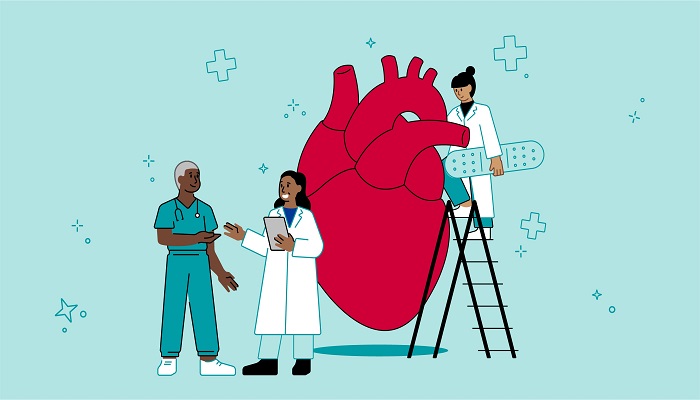Heart disease is the leading cause of death in the United States, making heart health paramount concern for maintaining overall well-being and longevity.
Heart disease is a broad term that includes conditions such as coronary artery disease, heart attack, stroke, heart failure and others according to the American Heart Association.
February is Heart Month, which was established to increase awareness of the importance of heart health and share new research and findings.
Researchers reached out to investigators at Massachusetts General Hospital and asked them to give us one science-backed action people can take to improve their heart health. See their responses below!
Kaavya Paruchuri, MD, Physician-Investigator, Cardiovascular Research Center, Massachusetts General Hospital said “As a preventive cardiologist, I firmly believe than “an ounce of prevention is worth a pound of cure.” My research in digital health has shown that there are many tools available to help make positive lifestyle changes to help prevent heart disease.
These apps and wearable monitors provide valuable feedback to support heart-healthy habits like increasing physical activity, improving dietary choices, and enhancing sleep quality.”
- Sawalla Guseh, MD, Director, Cardiovascular Performance Program, Massachusetts General Hospital said “Our research shows that, when it comes to exercise, it’s OK to be a weekend warrior.
Aim to incorporate exercise into your routine, regardless of whether it’s during the week or on the weekend.
Strive for at least 150 minutes (about 2 and a half hours) of aerobic activity across the week; however, if you can manage more, it’s even better for your heart health.”
Suzanne J. Baron, MD, MSc, Director of Interventional Cardiology Research, Massachusetts General Hospital said “One of the best things that people can do to improve their heart health is to engage in physical activity.
A recent study published in the European heart Journal found that converting as little as 12 minutes a day of sedentary behavior into moderate physical activity had significantly positive effects on cholesterol levels, glycemic levels and body mass index.
Optimizing these cardiac risk factors with just minimal activity can certainly have a large downstream effect on an individual’s long term heart health.”
Amy Sarma, MD, Co-Director of the Women’s Heart Health Program and Cardiovascular Disease and Pregnancy Program, Massachusetts General Hospital said “Research has shown that patients with pregnancies complicated by high blood pressure are at higher risk for developing high blood pressure and cardiovascular disease later in life.
So a heart-healthy lifestyle and regular screening is especially important for this rising population of patients. Our group is researching how best to help patients improve their heart health following these complicated pregnancies.”
Michael C. Honigberg, MD, MPP, Physician-Investigator, Department of Cardiology, Massachusetts General Hospital said “It’s never too early for early prevention’ — healthy lifestyle behaviors like keeping a plant-forward Mediterranean-style diet and engaging in regular aerobic exercise to prevent development of overt cardiovascular risk factors and downstream cardiovascular disease.
Indeed, cardiovascular risk compounds across the course of life, so even small improvements in metrics such as blood cholesterol and blood pressure early in life can pay off in reducing later-life cardiovascular risk.”
Pradeep Natarajan, MD, MMSC, Director of Preventive Cardiology, Massachusetts General Hospital “Shop the ‘outside’ aisles of the grocery store (fresh foods), avoid ingredients you don’t understand, and cut out the added sugar. Drink less alcohol and drink more water.
Know your blood pressure and cholesterol and work with your doctor to keep these in check.
Lastly, make 2024 a year of social connection – strengthen relationships, connect with friends, and let those you love know that you love them.”
Source: Mass General Research Institute


